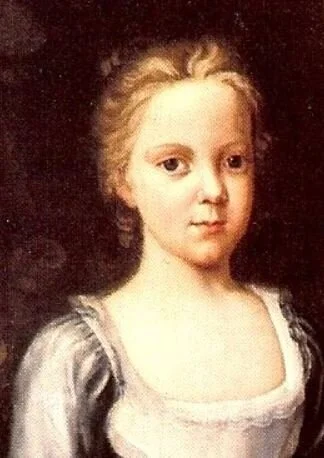Betsy Patterson Marries French Royalty...Kind Of
Updated 8/4/21
Betsy Patterson was a wealthy woman who married into the Bonaparte Family.
Betsy Patterson
Elizabeth Patterson came from one of the wealthiest families in Baltimore.
On top of that, Betsy, as she was commonly known, was exceedingly beautiful. In fact, she was frequently referred to as the most beautiful woman in the United States.
When she was 19 years old, a stranger came to town. Both Betsy and the stranger fell immediately in love.
That stranger was Jerome Bonaparte.
Jerome Bonaparte
Does the name Bonaparte sound familiar?
It should.
Jerome was the younger brother of Napoleon Bonaparte, who just happened to have recently named himself Emperor of France.
Jerome had found himself in some hot water, and his brother insisted he join the French Navy. He led his ship to American, searching for the best looking woman.
This is where Betsy and Jerome met.
Europe
Betsy was quickly married to Jerome and, after getting pregnant, the two journeyed to Europe.
Unfortunately, Napoleon wanted his brother to enter a marriage which would advance the family’s prestige. And when you’re Napoleon, you get your way.
Betsy tried to enter France so her baby would be born a French citizen, but the Emperor denied her ship from landing in port. Instead, Betsy went to England where Jerome Napoleon Bonaparte was born as an American.
The Betrothed Part
Betsy’s husband Jerome left her on the ship to try and convince his brother to let the marriage stand.
He did not.
Instead Napoleon attempted to have the Pope grant a divorce. When this was refused, Napoleon annulled the marriage with an act of French law.
Betsy said goodbye to her husband when he exited the ship.
She would never see him again.
American Royalty
Well, that’s not entirely true.
Betsy had returned to the United States to raise her son. More than a decade elapsed before the State of Maryland finally authorized her divorce, an exceedingly rare occurrence in that day.
Betsy continued to manage her father’s properties, making her one of the wealthiest women in the nation. In 1815, after Napoleon had been defeated and exiled (for the second time), she returned to Europe.
Due to her riches and ‘noble’ connections, Betsy rubbed elbows with the fanciest of Europeans. During this time, while attending an affair, she saw him again.
One Last Time
Jerome had spent six years as King of Westphalia, but after his brother’s downfall was relegated to a Prince. He had remarried and had several children.
Their eyes met.
Fifteen years had passed.
Though they did not speak, and we can only imagine the feelings they had, the two must have considered what might have been. In a fashion, this passing glance may have been more heartbreak than if they had never seen each other again.
The American Bonaparte’s
Though she never again wed, Betsy did live to the ripe old age of 94.
Her son, Jerome Napoleon Bonaparte, eventually received a title of nobility from his cousin Napoleon III.
One of his sons, Charles, eventually went on to become Attorney General of the United States as well as Secretary of the Navy under Theodore Roosevelt.
Perhaps she was never nobility, but Betsy Patterson gave the United States a line of Bonaparte’s, and that is something even the Emperor himself could not accomplish.
If you’d like to read about some of the other Founding Mothers I’ve written about, check out these articles on Deborah Sampson and Mary Katherine Goddard.
Betsy Patterson actually has several books written about her, but many of them are fictionalized versions. ‘A Woman of Two Worlds’ is an historical account, so if you would like to read about her fascinating life, please consider purchasing through the affiliate link below which helps to support this site at no additional cost to you.
If you are new to this website, please consider signing up for my email list to receive a new article every day.






